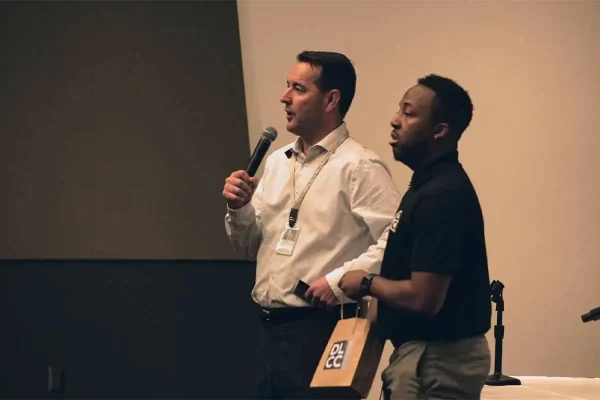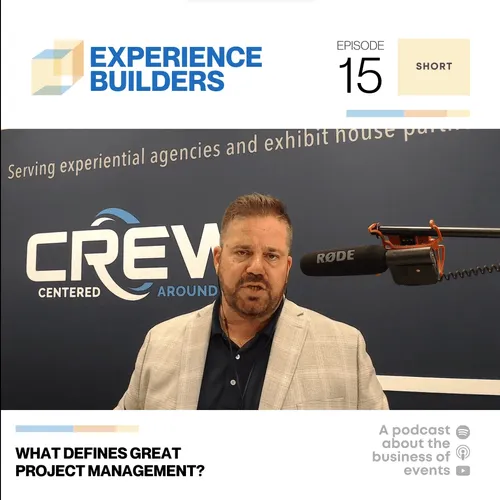There are many compelling reasons to participate in Singapore’s bustling tradeshow industry, including a business-friendly government, skilled tradeshow industry specialists and world-class facilities capable of extending exhibitors’ marketing reach into the emerging markets of Southeast Asia and beyond.
The Abilities Expo annually is held in several U.S. locations, but the tradeshow targeting those in need of products and services for people with various disabilities chose Singapore for its first overseas event in 2012.
“The country is experienced in hosting international events, and they have been doing it for 40 years,” said David Korse, CEO, Abilities Expo. “I knew we could count on the established general contractors. Singapore has the know-how and infrastructure for events on the international level.”
In addition to its know-how and infrastructure, Singapore is a nation generally friendly toward Western culture and business practices, making for relatively smooth transitions for tradeshow organizers and exhibitors looking for new opportunities.
“Being a key entry point for Western companies and people entering Asia, Singapore is a city frequented by tourists and is known for its comfortable climate and city environment,” said Shirley Li, general manager, Asia headquarters, EWI Worldwide. EWI is a global exhibit and event-designing company based in the United States and with offices in Shanghai and Hamburg, Germany.
Singapore has three primary convention centers with the Marina Bay Sands Expo and Convention Center the newest of the trio after opening in 2011. Workers are scheduled to complete a $150 million upgrade on the nearby Suntec Centre in May. And the Singapore EXPO Convention and Exhibition Centre recently opened its sustainability-designed MAX Atria convention center, is the first to earn Singapore’s BCA Green Mark Platinum award for being environmentally friendly.
In addition to its world-class exhibition facilities, Singapore offers highly experienced partners and general contractors to ensure exhibitors and tradeshow organizers have successful events.
“Their general contractors are similar to the ones here and are every bit as professional as GES and Freeman,” said Korse.
Officials for Abilities Expo worked with Singapore-based partners to ensure their tradeshow properly conformed to local laws and cultural norms in Asia, where messaging content can differ greatly than in North America. Also different is how tradeshow booths are built and powered with 220 to 240 volts.
“They have different power and exhibiting construction,” said Korse. “There is no pipe-and-drape. Some [Abilities Expo] exhibitors had to get used to booths with hard walls. There is a lot of tension fabric in the U.S.”
The types of tradeshows held in Singapore vary greatly, but ones focused on consumer goods and cutting-edge technology are very popular.
“Tradeshows held in Singapore are commonly focused on the fast-moving consumer goods industry and can include consumer products, food & beverage, hospitality, travel, jewelry, etc., as well as information technology, electronics and semiconductors,” said Li. “Well-known events in Singapore include SEMICON as well as major travel and logistics shows.”
And there are more tradeshows being held in Singapore each year with U.S. participation increasing, particularly among technology-based events.
“The trend of tradeshows in Singapore is rising, especially for the aerospace industry,” said Li. “SEMICON and IT-focused tradeshows are those that most often draw participation from U.S.-based associations and corporations.”
Part of that rise in U.S. participation likely is due to the expected regional increase in capital investment in high-tech industries, such as the semiconductor industry. SEMICON Singapore is an annual international tradeshow for the semiconductor industry now in its 20th year and featuring more than 40 programs and forums highlighting the industry’s latest trends and newest technologies.
For the Southeast Asia region, capital-equipment investment in the semiconductor industry is expected to increase in the second half of 2013 followed by a strong recovery in 2014, according to SEMI, a global association serving the nano- and microelectronics manufacturing supply chains. Overall front-end fab equipment spending is expected to double next year from $810 million in 2013 to $1.62 billion in 2014.
Many businesses recognize the economic potential of nearby China, but officials in many industries are wary of holding exhibitions and revealing new technologies in a nation in which intellectual property rights do not exist. But business-friendly Singapore is quite different with its stringent enforcement of intellectual property rights.
“While many international companies have moved their Pan-Pacific headquarters to China, Singapore still has many key shows, including those for the aerospace industry,” said Li. “The scale of these shows is much bigger due to Singapore’s advantage over countries like China, which may have sensitivity around technology and political issues.”
With a significant market advantage over China, Singapore continues drawing tradeshow events with a high-tech focus. But many other industries can prove successful there. Deciding to put on a tradeshow in Singapore really is similar to choosing participation in the states.
“You are looking for geography that does not have a similar event,” said Korse. “It’s the same process as you go through here. Singapore has a pretty well-represented and mature market.”
Despite having a mature market, abundant business opportunities exist in Singapore, where it is very easy to get a business started. The decision to hold the Abilities Expo in there came down to personal as well as business reasons.
“It was not as much a commercial reason,” said Korse. “I had a contact in Singapore who had a personal interest. We made him our licensee, and it’s been a very positive experience.”
The Abilities Expo Singapore proved successful during its inaugural run and has grown this year. Many new exhibitors awaited results of the first show, and when results proved positive, more have signed on for the 2013 run at the Suntec Centre. But not every tradeshow can be as successful.
“It’s important to note that there are very few industrial shows in Singapore, such as auto shows, heavy machinery shows, etc., as Singapore doesn’t have an industrial base in these markets,” said Li.
While there are some limitations, with proper foresight and planning, Singapore’s superlative tradeshow industry offers a great deal of promise and growth for enterprising organizations and individuals.































